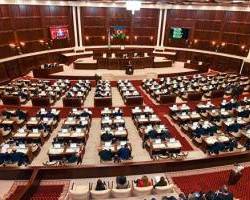By Decision No. 365 of the Cabinet of Ministers of the Republic of Azerbaijan dated September 30, 2020, the “Regulations for recording cash funds and cash register transactions of taxpayers” were approved. This Regulation was adopted in order to ensure the implementation of sub-clause 1.1.11 of the Decree of the President of the Republic of Azerbaijan No. 414 dated December 20, 2018, and regulates the procedure for cash accounting and cash register transactions of taxpayers. This Regulation does not apply to the Central Bank of the Republic of Azerbaijan, organizations financed from the state budget and credit organizations.
According to this Regulation, the cash funds withdrawn from the bank account is determined according to the purposes specified in the check-book and the bank's expenditure order. The purpose of the funds must be indicated in the cash receipt order formed for the funds received in the taxpayer's cashier from various sources. If a taxpayer or another authorized person withdraws funds from a bank account in cash, then the funds must be deposited at the cash register on the same day and by the same person by forming a cash receipt order.
The cash fund received by the petty cash custodian of the taxpayer shall be utilized within 5 working days. In this case, work-related business trip expenses are excluded. Refunds may be requested from petty cash custodian earlier than the specified period. Employees on the business trip must return the unused cash money to the cashier no later than 3 (three) working days after the end of the business trip.
The cash disbursement order shall be signed by the head of the taxpayer or their relevant structural unit, the chief accountant or their authorized representatives, as well as the treasurer and the persons receiving the money. The treasurer may handover cash only to the persons specified in the cash disbursement order or the the persons defined in the power of attorney attached to it. If cash is issued on the basis of a power of attorney with a cash disbursement order, then the information about the name, surname, father's name, series, number, place, and date of issuance of the identity document of the empowered person shall be specified in the order after the name, surname and father's name of the person receiving the money. If the recipient of the cash funds is not an employee of the taxpayer, then the name, series, number, place and date of issuance of the document confirming the identity of the recipient shall be written in the cash disbursement order.
The cash receipt order and its bills, as well as the cash disbursement order and the payment documents attached to it must be filled in an accurate and clear manner and no corrections shall be allowed in such documents. It is not allowed to tear cash receipt forms, to clear any part, to stain, as well as to make corrections on cash receipt and expenditure orders. The treasurer must check the presence of signatures in the documents and their compliance with the sample of signatures, the accuracy of the documents, the accuracy of the amounts, the availability of additional documents.
Taxpayers shall open a separate cash book in the prescribed form for cash transactions on all types of currencies. These books reflect the cash flow of cash transactions from all sources.
Unauthorized correction in the cash book is not allowed. Any correction shall be duly approved by the signatures of the treasurer, the chief accountant or his/her deputies. The chief accountant supervises the correct compilation of the cash book and the conduct of cash transactions. The cash report submitted to the chief accountant is checked and accepted by him/ her. Cash shall not be received without a cash receipt order or withdrawn without a cash disbursement order from the cash register.
After hiring the treasurer, the head of the taxpayer or head of the relevant department shall officially acquaint him with the rules of conducting cash transactions and conclude an individual agreement on full financial liability with him/ her in accordance with the established procedure. In case of replacement of the treasurer, the performance of his/ her duties shall be entrusted to another employee by the order of the head of the taxpayer. An individual agreement on full financial liability shall be concluded with the employee entrusted with the performance treasurer functions. In case of a taxpayer who does not have a treasurer in their staff, the execution of cash transactions is entrusted to another employee by the order of the head of the taxpayer, and an individual agreement on full financial liability is concluded with him/her.
Once the Competition Code enters into force, previous laws, i.e. the Law on Antitrust Activities,...
Currency control and foreign-exchange regulations are simplified in Azerbaijan. The amendments pr...
Recent amendments to the Law of the Republic of Azerbaijan "On Advertising" are aimed at comprehe...




